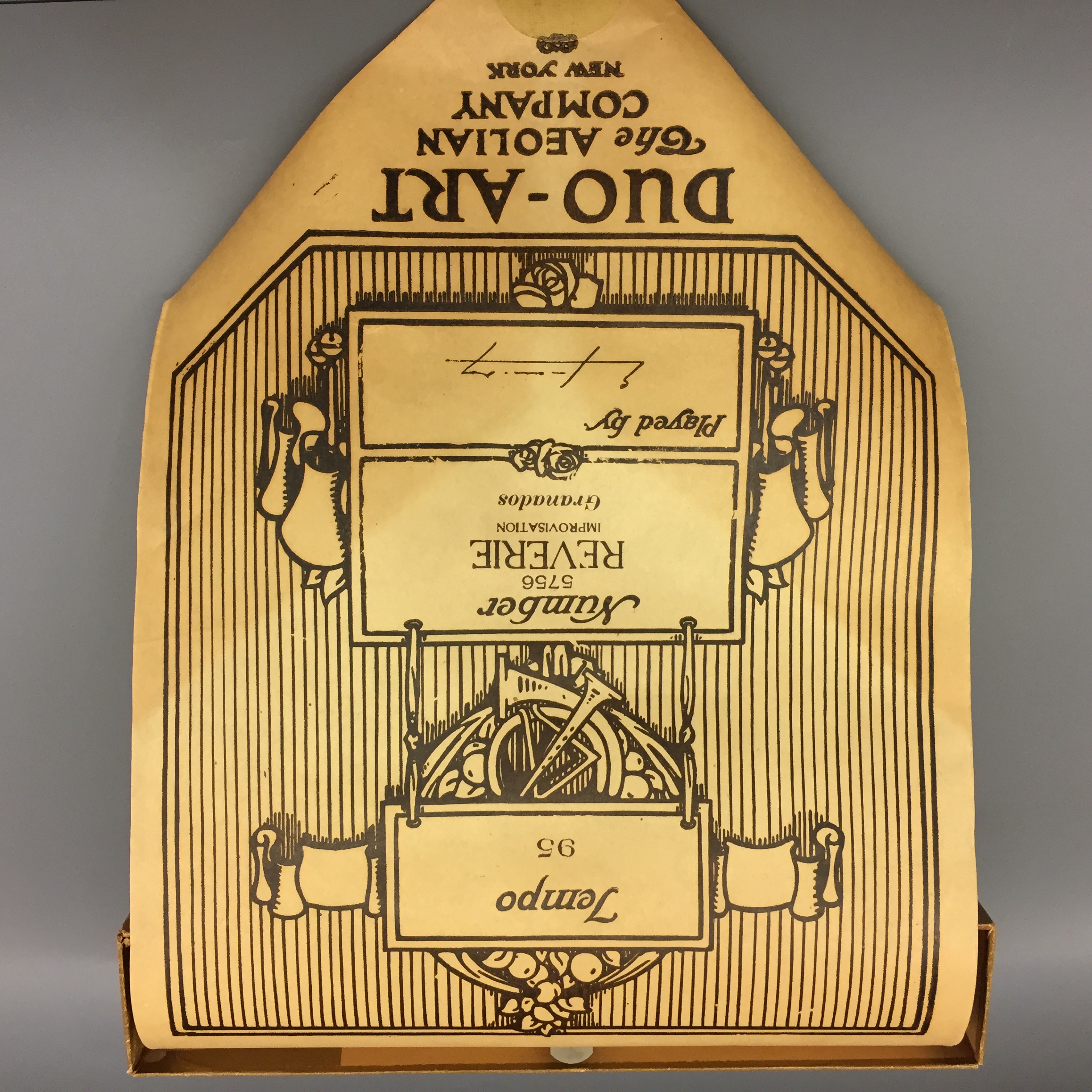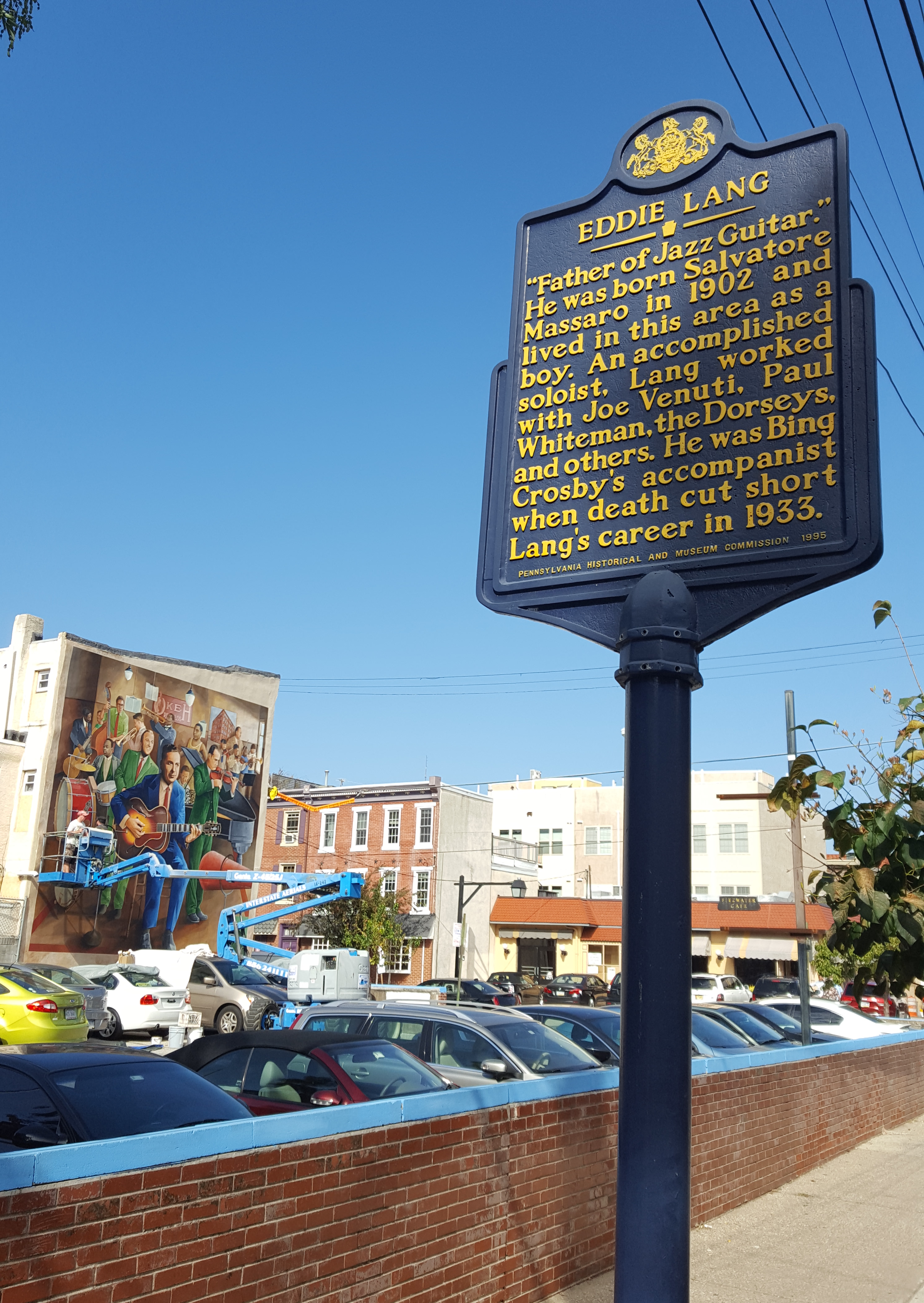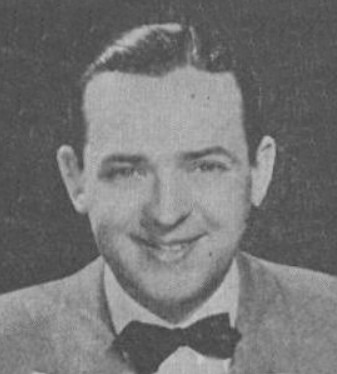|
Fred Rich
Frederic Efrem Rich (January 31, 1898 – September 8, 1956) was a Polish-born American bandleader and composer who was active from the 1920s to the 1950s. Among the musicians in his band were the Dorsey Brothers, Joe Venuti, Bunny Berigan, and Benny Goodman. In the early 1930s, Elmer Feldkamp was one of his vocalists. Early life Rich was born in Warsaw, Poland. He settled with his parents in New York City and showed an early proficiency for music. He studied at the Damrosch Conservatory of Music and led an orchestra at the Hotel Astor. Career Rich was a pianist and formed his band in the early-1920s. His theme songs were "I'm Always Chasing Rainbows" and "So Beats My Heart for You." Between 1925 and 1928, he toured Europe. He enjoyed a long stay at the Waldorf-Astoria in New York City. He began leading a studio band and recorded for Okeh, Columbia, Paramount, Camden, and Vocalion, often under the names Fred Richards, the Astorites, and the Hotel Astor Band. Rich and his ban ... [...More Info...] [...Related Items...] OR: [Wikipedia] [Google] [Baidu] |
Warsaw
Warsaw ( pl, Warszawa, ), officially the Capital City of Warsaw,, abbreviation: ''m.st. Warszawa'' is the capital and largest city of Poland. The metropolis stands on the River Vistula in east-central Poland, and its population is officially estimated at 1.86 million residents within a greater metropolitan area of 3.1 million residents, which makes Warsaw the 7th most-populous city in the European Union. The city area measures and comprises 18 districts, while the metropolitan area covers . Warsaw is an Alpha global city, a major cultural, political and economic hub, and the country's seat of government. Warsaw traces its origins to a small fishing town in Masovia. The city rose to prominence in the late 16th century, when Sigismund III decided to move the Polish capital and his royal court from Kraków. Warsaw served as the de facto capital of the Polish–Lithuanian Commonwealth until 1795, and subsequently as the seat of Napoleon's Duchy of Warsaw. Th ... [...More Info...] [...Related Items...] OR: [Wikipedia] [Google] [Baidu] |
I'm Always Chasing Rainbows
"I'm Always Chasing Rainbows" is a popular Vaudeville song. The music is credited to Harry Carroll, but the melody is adapted from ''Fantaisie-Impromptu'' by Frédéric Chopin. The lyrics were written by Joseph McCarthy, and the song was published in 1917. It was introduced in the Broadway show ''Oh, Look!'' which opened in March 1918. The song was sung in the show by the Dolly Sisters. Judy Garland sang it in the 1941 film ''Ziegfeld Girl''. It was subsequently sung by Jack Oakie in the 1944 film '' The Merry Monahans'' and was again featured in the 1945 film '' The Dolly Sisters'' (1945 in film), where it was sung by John Payne. It was also included for part of the run (and in the cast album) of the 1973 revival of ''Irene''. The song is a true popular standard, recorded by many artists over the years. Lyrics Recorded versions Hit versions in 1918 The biggest hit version in 1918 was recorded by Charles W. Harrison on July 26, 1918, and released by Victor Records as catalog ... [...More Info...] [...Related Items...] OR: [Wikipedia] [Google] [Baidu] |
Stage Door Canteen (film)
''Stage Door Canteen'' is a 1943 American World War II film with musical numbers and other entertainment interspersed with dramatic scenes by a largely unknown cast. The film was produced by Sol Lesser's Principal Artists Productions and directed by Frank Borzage. The film features many celebrity cameo appearances but primarily relates a simple drama set in the famed New York City restaurant and nightclub for American and Allied servicemen. Six bands are featured. The score and the original song, "We Mustn't Say Goodbye", were nominated for Academy Awards. ''Stage Door Canteen'' is in the public domain in North America and for this reason is widely available in many DVD and VHS releases of varying quality. Plot The film, made in wartime, celebrates the work of the Stage Door Canteen, created in New York City as a recreational center for both American and Allied servicemen on leave to socialize with, be entertained or served by Broadway celebrities. The storyline follows s ... [...More Info...] [...Related Items...] OR: [Wikipedia] [Google] [Baidu] |
Academy Award For Original Music Score
The Academy Award for Best Original Score is an award presented annually by the Academy of Motion Picture Arts and Sciences (AMPAS) to the best substantial body of music in the form of dramatic underscoring written specifically for the film by the submitting composer. Some pre-existing music is allowed, though, but a contending film must include a minimum of original music. This minimum since 2021 is established in 35% of the music, which is raised to 80% for sequels and franchise films. Fifteen scores are shortlisted before nominations are announced. History The Academy began awarding movies for their scores in 1935. The category was originally called Best Scoring. At the time, winners and nominees were a mix of original scores and adaptations of pre-existing material. Following the controversial win of Charles Previn for ''One Hundred Men and a Girl'' in 1938, a film without a credited composer that featured pre-existing classical music, the Academy added a Best Original Sc ... [...More Info...] [...Related Items...] OR: [Wikipedia] [Google] [Baidu] |
I'm Just Wild About Animal Crackers
"I'm Just Wild About Animal Crackers" is a 1926 novelty song by Fred Rich, Harry Link, and Sam Coslow. It was first recorded by Irving Aaronson and his Commanders. Around the release of the song, A&P Stores and Henry Waterson Inc. arranged to sell a copy of the song and a box of animal crackers together for 25 cents. Notable recordings *Mel Blanc and the Sportsmen with Billy May's Orchestra *The Six Jumping Jacks *Harry Reser and Seven Wild Men *Irving Aaronson and his Commanders *Duke Ellington Edward Kennedy "Duke" Ellington (April 29, 1899 – May 24, 1974) was an American jazz pianist, composer, and leader of his eponymous jazz orchestra from 1923 through the rest of his life. Born and raised in Washington, D.C., Ellington was based ... and His Washingtonians *The California Ramblers References {{authority control Foxtrots 1926 songs Songs with music by Harry Link Songs written by Sam Coslow ... [...More Info...] [...Related Items...] OR: [Wikipedia] [Google] [Baidu] |
Duo-Art
Duo-Art was one of the leading reproducing piano technologies of the early 20th century, the others being American Piano Company (Ampico), introduced in 1913 too, and Welte-Mignon in 1905. These technologies flourished at that time because of the poor quality of the early Phonograph (Gramophone in Britain).Daily Telegraph, Gerald Stonehill Obituary 8 Mar 11 Between 1913 and 1925 a number of distinguished classical and popular pianists, such as Ignace Paderewski, Josef Hofmann, Percy Grainger, Teresa Carreño, Aurelio Giorni, Robert Armbruster and Vladimir Horowitz, recorded for Duo-Art, and their rolls are a legacy of 19th-century and early 20th-century aesthetic and musical practice. The recording process – using a piano wired to a perforating machine – was unable to capture the pianist's dynamics automatically. These were added by a recording technician, who manipulated hand controls to notate the dynamics onto the recording 'master'. Thus, post-recording editing was requir ... [...More Info...] [...Related Items...] OR: [Wikipedia] [Google] [Baidu] |
Cheerful Little Earful
"Cheerful Little Earful" is a 1930 song composed by Harry Warren, with lyrics by Ira Gershwin and Billy Rose. It was written for the musical '' Sweet and Low'' (1930). Actress and singer Fanny Brice, who was married to Billy Rose at the time, starred in ''Sweet and Low'', where she and George Jessel sang the song. The actress Hannah Williams was known in particular for the song, "Cheerful Little Earful" in which she also performed in the Broadway production of ''Sweet and Low''. As the last line of each stanza notes, the "cheerful little earful" is "the well known 'I love you.'" The piece became popular outside of the show and was recorded in several forms. Notable recordings *Tom Gerun & His Orchestra - a Brunswick recording (catalog 4971) which was popular in 1930. *Chick Bullock - recorded on December 9, 1930 for Perfect Records (catalog No. 12675). *Fred Rich & His Orchestra (vocal by Smith Ballew) - recorded on November 19, 1930 for Parlophone Records (catalog No. 34157). ... [...More Info...] [...Related Items...] OR: [Wikipedia] [Google] [Baidu] |
I Got Rhythm
"I Got Rhythm" is a piece composed by George Gershwin with lyrics by Ira Gershwin and published in 1930, which became a jazz standard. Its chord progression, known as the "rhythm changes", is the foundation for many other popular jazz tunes such as Charlie Parker's and Dizzy Gillespie's bebop standard "Anthropology (Thrivin' on a Riff)". Composition The song came from the musical ''Girl Crazy'', which also includes two other hit songs, "Embraceable You" and " But Not for Me", and has been sung by many jazz singers since. It was originally written as a slow song for ''Treasure Girl'' (1928) and found another, faster setting in ''Girl Crazy''. Ethel Merman sang the song in the original Broadway production and Broadway lore holds that George Gershwin, after seeing her opening reviews, warned her never to take a singing lesson. The four-note opening riff bears a striking resemblance to the opening melody of the third movement of William Grant Still's ''Symphony No. 1,'' "Afro-A ... [...More Info...] [...Related Items...] OR: [Wikipedia] [Google] [Baidu] |
Eddie Lang
Eddie Lang (born Salvatore Massaro, October 25, 1902 – March 26, 1933) was an American musician who is credited as the father of jazz guitar. During the 1920s, he gave the guitar a prominence it previously lacked as a solo instrument, as part of a band or orchestra, and as accompaniment for vocalists. He recorded duets with guitarists Lonnie Johnson and Carl Kress and jazz violinist Joe Venuti, and played rhythm guitar in the Paul Whiteman Orchestra and was the favoured accompanist of Bing Crosby. Biography The son of an Italian-American instrument maker, Lang was born in Philadelphia, Pennsylvania, and grew up with violinist Joe Venuti. His first instrument was violin when he was seven. He performed on violin in 1917 and became a member of a trio. In 1920, he dropped the violin for banjo and worked with Charlie Kerr, then Bert Estlow, Vic D'Ippolito, and Billy Lustig's Scranton Siren Orchestra. A few years later, he dropped the banjo for guitar when he became a member ... [...More Info...] [...Related Items...] OR: [Wikipedia] [Google] [Baidu] |
Jimmy Dorsey
James Francis Dorsey (February 29, 1904 – June 12, 1957) was an American jazz clarinetist, saxophonist, composer and big band leader. He recorded and composed the jazz and pop standards "I'm Glad There Is You (In This World of Ordinary People)" and " It's The Dreamer In Me". His other major recordings were "Tailspin", " John Silver", " So Many Times", " Amapola", "Brazil ( Aquarela do Brasil)", " Pennies from Heaven" with Bing Crosby, Louis Armstrong, and Frances Langford, "Grand Central Getaway", and "So Rare". He played clarinet on the seminal jazz standards "Singin' the Blues" in 1927 and the original 1930 recording of "Georgia on My Mind", which were inducted into the Grammy Hall of Fame. Early life Jimmy Dorsey was born in Shenandoah, Pennsylvania, United States, the first son of Theresa Langton Dorsey and Thomas Francis Dorsey. His father, Thomas, was initially a coal miner, but would later become a music teacher and marching-band director. Both Jimmy and his younger ... [...More Info...] [...Related Items...] OR: [Wikipedia] [Google] [Baidu] |
Tommy Dorsey
Thomas Francis Dorsey Jr. (November 19, 1905 – November 26, 1956) was an American jazz trombonist, composer, conductor and bandleader of the big band era. He was known as the "Sentimental Gentleman of Swing" because of his smooth-toned trombone playing. His theme song was "I'm Getting Sentimental Over You". His technical skill on the trombone gave him renown among other musicians. He was the younger brother of bandleader Jimmy Dorsey. After Dorsey broke with his brother in the mid-1930s, he led an extremely successful band from the late 1930s into the 1950s. He is best remembered for standards such as "Opus No. 1, Opus One", "Song of India (song), Song of India", "Marie", "On Treasure Island", and his biggest hit single, "I'll Never Smile Again". Early life Born in Mahanoy Plane, Pennsylvania, Thomas Francis Dorsey Jr. was the second of four children born to Thomas Francis Dorsey Sr., a bandleader, and Theresa (née Langton) Dorsey. He and Jimmy, his older brother by slightly ... [...More Info...] [...Related Items...] OR: [Wikipedia] [Google] [Baidu] |
_1.jpg)



